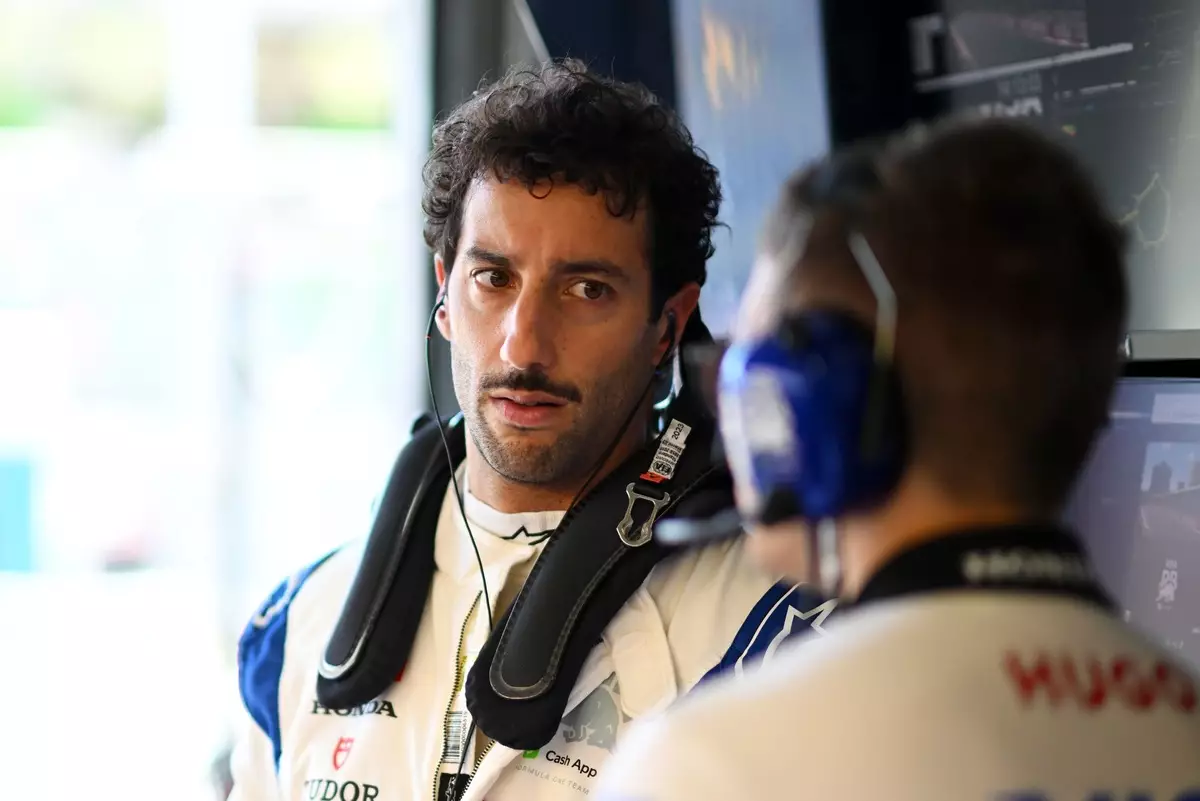The recent departure of Daniel Ricciardo from Red Bull Racing has sparked discussions about the expectations and realities of Formula 1 teamwork and driver performance. Having once been a key figure in the team’s success, Ricciardo returned to Red Bull as a safety net for the struggling Sergio Perez. Although his reintroduction was shrouded in hope, it quickly became evident that the partnership was fraught with challenges. The team principal, Laurent Mekies, openly acknowledged that both he and the team share responsibility for Ricciardo’s lack of success during his final tenure. It serves as a stark reminder of the pressures and uncertainties that drivers and teams face in the high-stakes world of Formula 1.
Ricciardo’s return to Red Bull was marked by promise but quickly derailed following a hand injury during a practice session at the Dutch Grand Prix. As he transitioned back into the cockpit, it was apparent that finding his groove in the VCARB 01 car was going to be no easy feat. While he displayed flashes of brilliance, notably during the sprint race in Miami where he clinched fourth place, the overall consistency necessary for top-tier performance was lacking. His performance has even seen him overshadowed by young driver Yuki Tsunoda, raising questions regarding his future at Red Bull. Mekies’ frank admission that the team could not provide Ricciardo with the stability and setup needed to build momentum is indicative of the complex dynamics involved in driver development and car performance.
The Quest for Consistency
Achieving consistent speed in Formula 1 is often more challenging than demonstrating isolated brilliance. Mekies emphasized that it is one thing to shine in a single race or qualifying session, but the true test lies in maintaining that level across multiple races. He admitted that while Ricciardo managed to tap into his previous race-winning form on occasion, the team failed to keep him in that optimal performance zone frequently. This acknowledgment points toward underlying issues within the team’s management of driver development and car tuning that could have profoundly impacted Ricciardo’s ability to consistently deliver.
Unexpectedly, Ricciardo’s struggles paved the way for his replacement, Liam Lawson, to become a more attractive option for Red Bull. As the engineering team analyzed every aspect of Ricciardo’s performance to optimize the car’s setup, they developed a broader understanding of the vehicle’s potential. Mekies noted that the explorations pushed the technical team to delve deeper into the car’s capabilities. This thirst for understanding and improvement would eventually benefit future drivers, illustrating the ongoing cycle of analysis, learning, and adaptation that defines Formula 1.
Despite the less than favorable outcomes of his driving stint, Mekies praised Ricciardo’s substantial contributions to the team’s ongoing development efforts. His technical feedback and approach to racing provided crucial insights during a challenging phase in which Red Bull was attempting to reorganize its strategies and improve performance. Ricciardo’s experience as a race-winner brings invaluable knowledge to a project, particularly during times of uncertainty. His efforts to guide the team, even if only in a limited capacity, may help shape a more competitive Red Bull in the future.
The departure of Daniel Ricciardo from Red Bull serves as a poignant lesson in acknowledging responsibility within a team environment. As Mekies reflected on the collective failures that led to Ricciardo’s exit, it underscores the necessity for openness, evaluation, and adaptability in Formula 1. Moving forward, both Ricciardo and Red Bull can draw from this chapter, each learning how to navigate the unpredictable landscape of motorsport. The future is never certain in this fast-paced world, but the experiences gathered can serve as building blocks for improved strategies and future successes.

